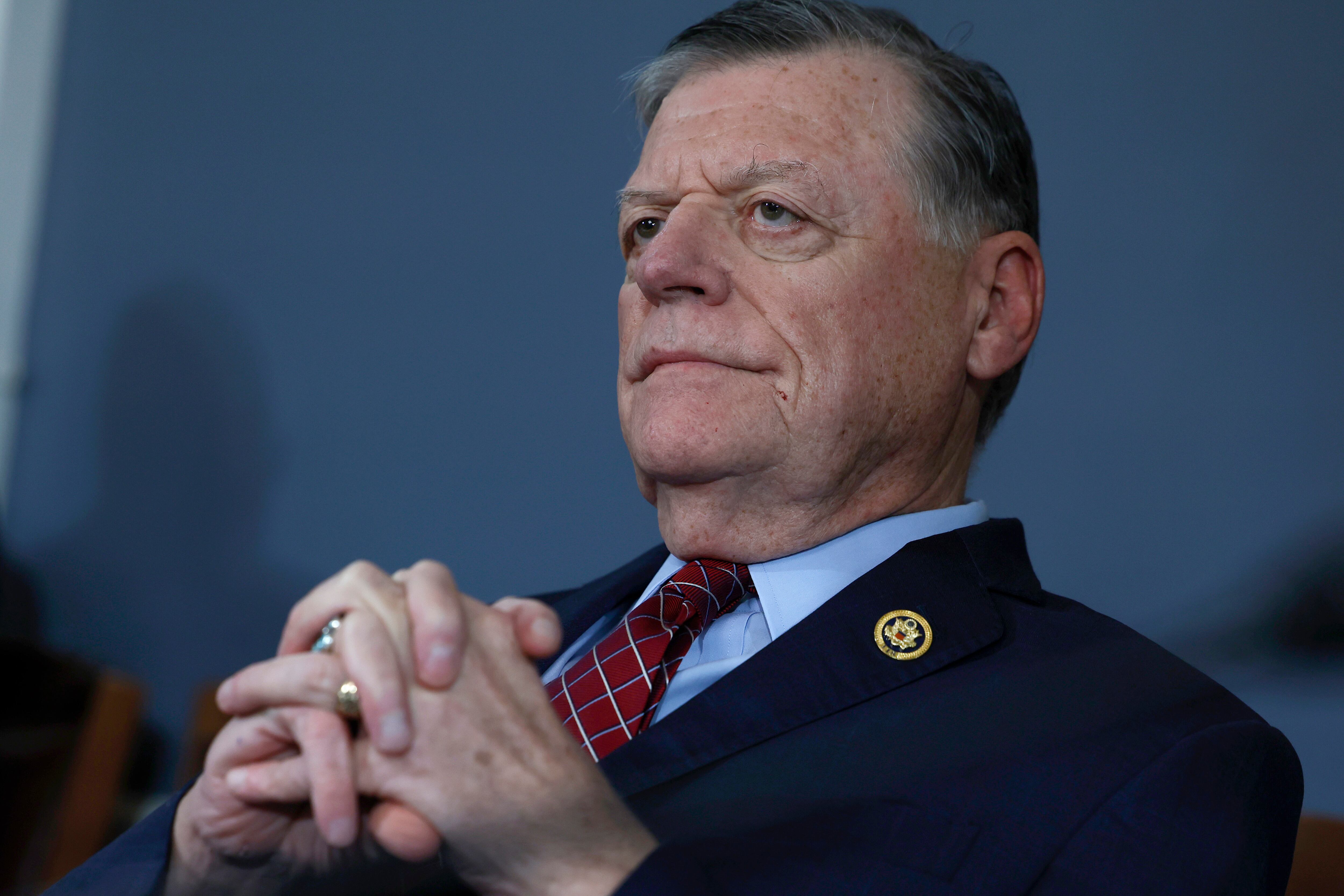Republicans on Wednesday selected their new leader of the House Appropriations Committee, replacing Rep. Kay Granger, R-Texas, who announced in March she would step down from the post.
The full Republican conference unanimously picked Rep. Tom Cole, R-Okla., to chair the committee. Although fellow defense appropriator Rep. Robert Aderholt, R-Ala., had also expressed interest in the position, Cole was the only candidate to formally run for the post.
Cole will step down as chairman of the House Rules Committee, which controls the floor agenda. Like Granger before him, he currently sits on the defense appropriations subcommittee and has historically favored large military budgets. He described the Biden administration’s fiscal 2025 defense budget proposal of $895 billion as insufficient during a hearing with Navy and Marine Corps leaders on Wednesday shortly after his appointment.
“I think this budget is too low,” Cole said. “I think that’s been consistently true with the administration. I also recognize we’re under the constraints of the Fiscal Responsibility Act, and that’s going to make it difficult for us to do some things I think we need to do.”
Cole was referring to last year’s debt ceiling agreement that capped discretionary spending levels. Under that agreement, the Defense Department receives more discretionary funding than all other federal agencies combined.
“I look forward to hitting the ground running tomorrow and am committed to engaging with the entire conference to deliver the necessary appropriations bills in a timely matter,” Cole said in a statement on Tuesday after the House Republican Steering Committee, which controls panel assignments, nominated him as appropriations chairman.
Congress did not pass a full FY24 defense spending bill until March, nearly six months into the fiscal year that began in October.
Granger, who is not running for reelection in November, said she is stepping down as appropriations chairwoman early in part because “an election year often results in final appropriations bills not getting enacted well until the next fiscal year.”
Cole told the Nebraska Examiner that he expects Congress will have to fund the government with a stopgap spending bill through the upcoming presidential election instead of full FY25 appropriations legislation at the start of the fiscal year on Oct. 1.
Whether Congress passes the FY25 spending bills before January depends on President Joe Biden or former President Donald Trump, the presumptive Democratic and Republican nominees, respectively.
“The winner will probably decide,” Cole told the Nebraska Examiner. “Do we want to finish business this calendar year, which is always the best thing to do, win or lose, or do you want to kick it into next year?
“I hope we don’t do that, but that’s the way I see it unfolding right now.”
As appropriations chairman, Cole will have to balance the demands of traditional Republican defense hawks and fiscal conservatives more closely aligned with Trump’s America First wing of the party. Cole also favors Ukraine aid and has consistently voted in favor of it, though Trump and a growing number of Republicans oppose additional assistance for Kyiv.
While House Speaker Mike Johnson, R-La., has said the House would act on Ukraine aid, he has so far ruled out putting the Senate’s $95 billion foreign aid bill — which also includes assistance for Israel and Taiwan — on the floor. The Senate passed that bill 70-29 in February.
Johnson has yet to reveal a formal plan for Ukraine aid. Rep. Marjorie Taylor Greene, R-Ga., has threatened to force a vote removing Johnson as speaker, should he move forward with a Ukraine package.
Last year’s effort instigated by a small band of right-wing Republicans to oust former Speaker Kevin McCarthy, R-Calif., plunged the House into weeks of chaos as the conference struggled to select a new leader.
Further complicating matters, House Republicans will be down to a one-vote majority after Rep. Mike Gallagher, R-Wis., leaves Congress later this month.
Bryant Harris is the Congress reporter for Defense News. He has covered U.S. foreign policy, national security, international affairs and politics in Washington since 2014. He has also written for Foreign Policy, Al-Monitor, Al Jazeera English and IPS News.





